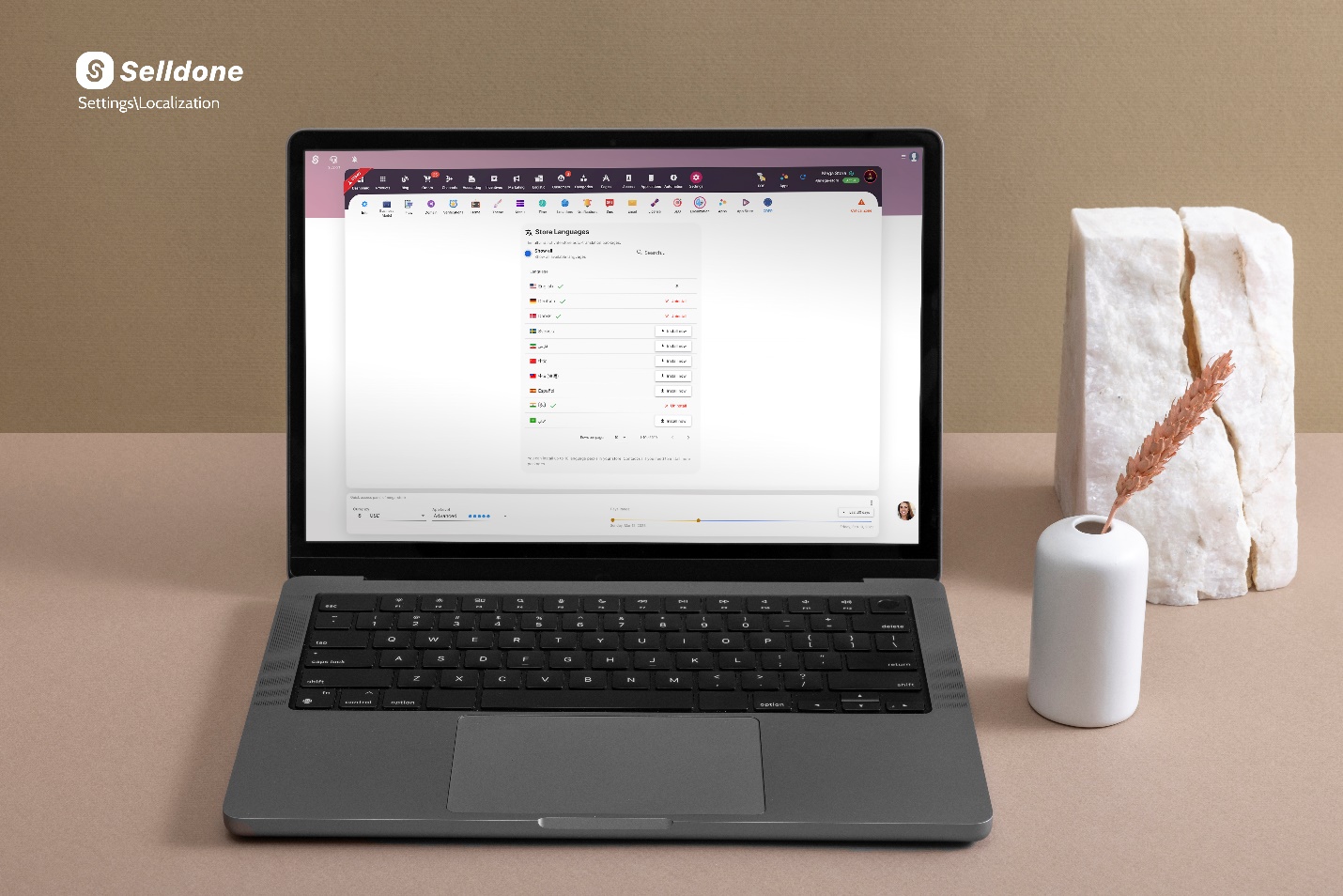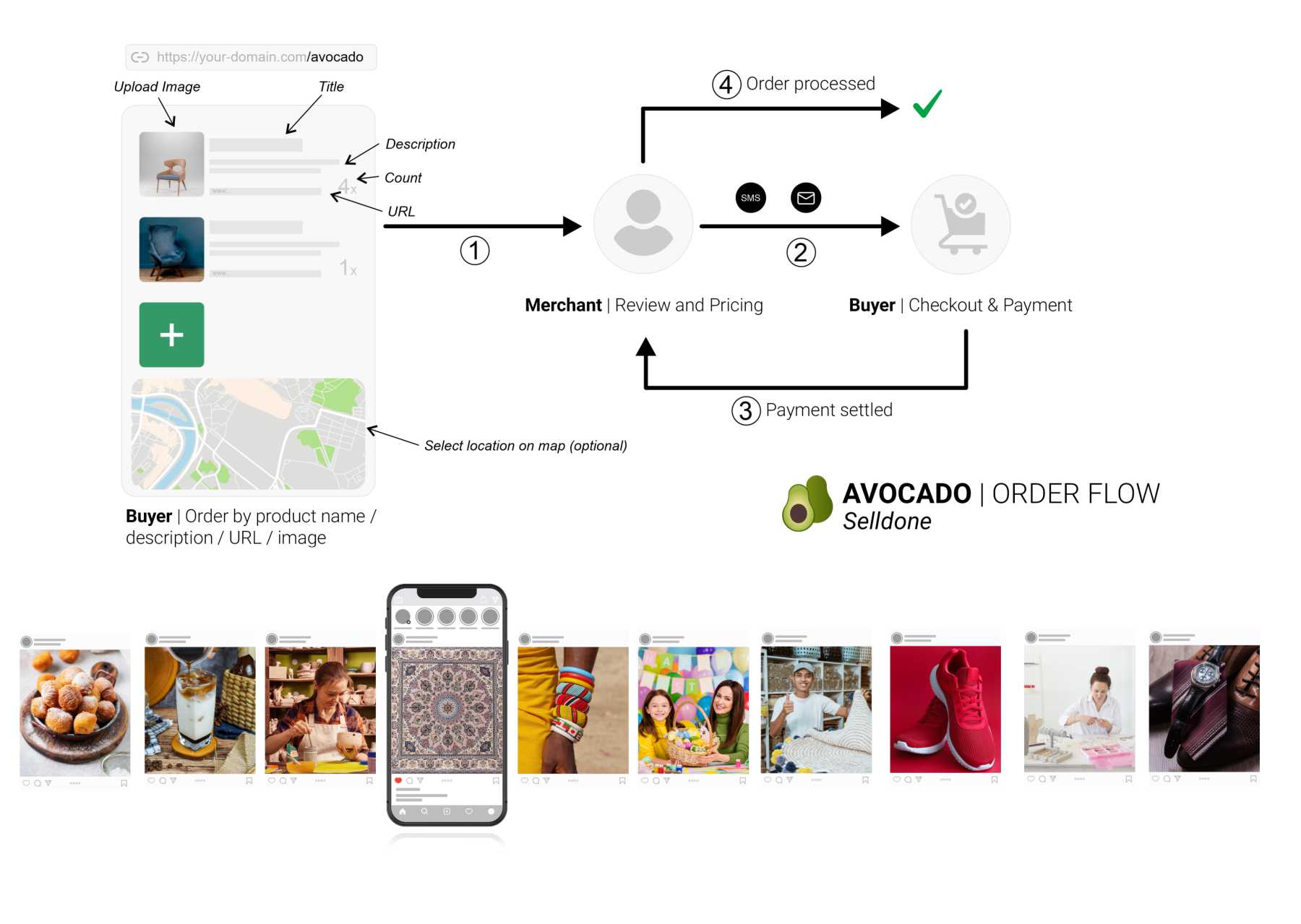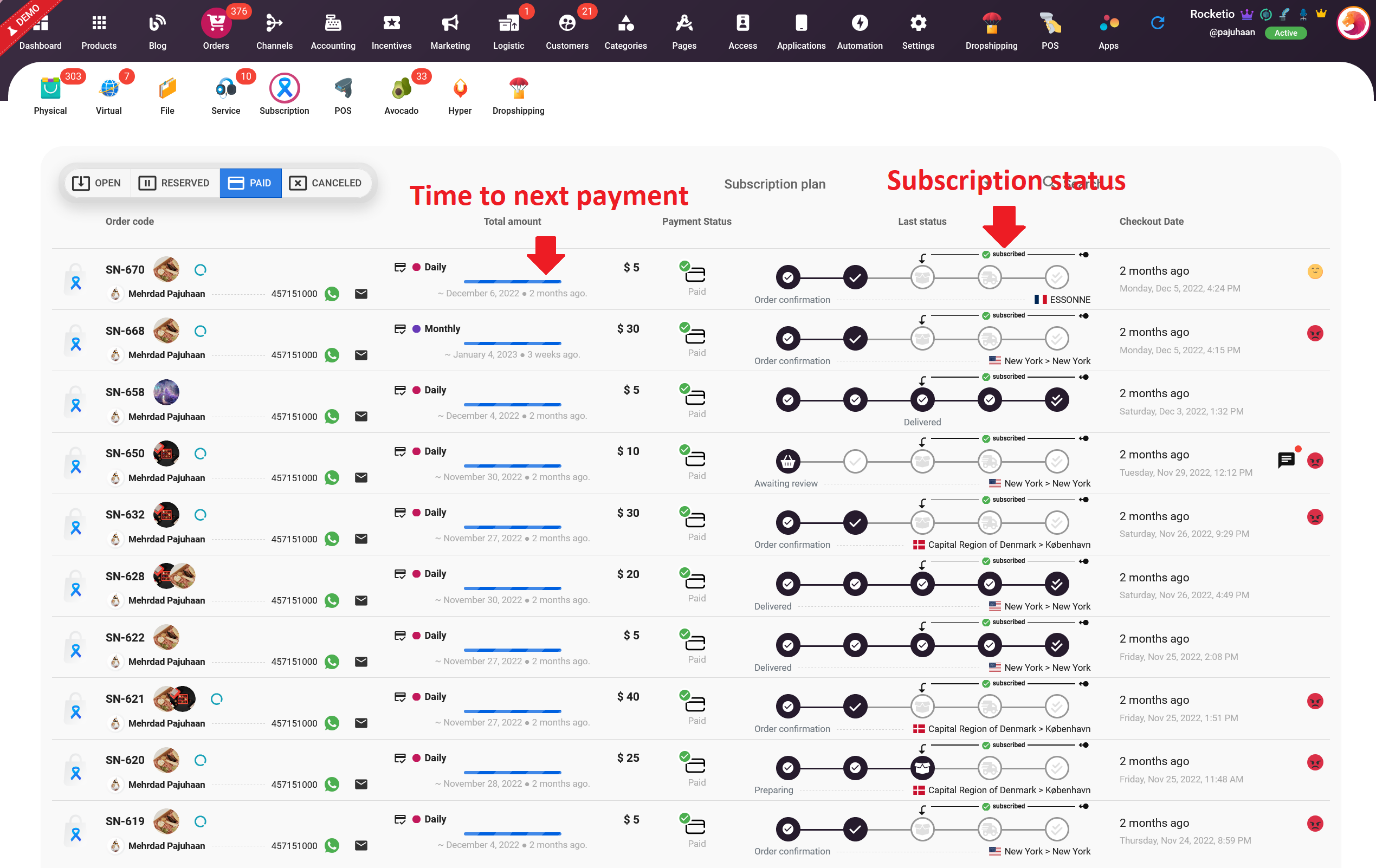How to Create a Marketplace for Travel Services

The travel industry is a rapidly growing sector that continues to expand and evolve. As more people are traveling for leisure, business, and education, there is an increasing need for travel services that cater to different needs and budgets. This has led to the rise of online marketplaces for travel services, where travelers can easily search, compare, and book flights, accommodations, activities, and other travel-related services.
This article will explore the essential steps involved in creating a marketplace for travel services, including identifying the target vendors, building the platform, marketing the platform, and how Selldone helps you succeed in this business!
Is creating a marketplace for travel services lucrative?
Creating a marketplace for travel services can potentially be a lucrative business opportunity, given the significant growth of the travel industry and the increasing demand for online travel services. The travel industry is one of the world's largest industries, generating trillions of dollars in revenue each year. With the rise of online travel booking, the traditional travel agency model has been replaced by online travel marketplaces, which provide travelers with a wide range of services and options.
Based on an article on Entrepreneur, marketplaces are taking over ecommerce. However, the success of a travel services marketplace depends on several factors, including the platform's user experience, the quality and variety of travel services offered, pricing competitiveness, marketing strategies, and the level of customer service provided. Building and maintaining a successful travel services marketplace requires a significant investment in time, resources, and expertise. It also involves fierce competition from other established travel marketplaces, which can make it challenging for new entrants to gain a foothold in the market.
How is the condition of marketplaces offering travel services?
The market for marketplaces for travel services is highly competitive and diverse, with many different types of platforms and services available. Here are some key trends and factors that are shaping the market:
Increased demand for personalized and unique travel experiences
Many travelers are looking for unique and customized travel experiences, rather than standard packages or tours. As a result, many travel marketplaces are offering tools and features that allow travelers to create their own itineraries, book unique accommodations, and connect with local guides and experiences.
Growing popularity of alternative accommodations
The popularity of alternative accommodations such as vacation rentals, home shares, and boutique hotels is on the rise. As a result, many travel marketplaces are focusing on offering a wide range of accommodation options to cater to different traveler preferences and budgets.
Integration of new technologies
Many travel marketplaces are leveraging new technologies such as artificial intelligence, machine learning, and blockchain to improve their services and offer more personalized experiences. For example, some platforms are using AI-powered chatbots to assist travelers with booking and customer service, while others are using blockchain technology to provide more secure and transparent transactions.
Increasing competition and consolidation
The market for travel marketplaces is highly competitive, with many different platforms vying for market share. Some marketplaces are consolidating through mergers and acquisitions to gain a stronger foothold in the market, while others are focusing on niche markets or specific travel segments to differentiate themselves from competitors.
Regulatory challenges
Travel marketplaces may face regulatory challenges related to issues such as licensing, taxation, and consumer protection. As a result, many platforms are working closely with regulators and industry associations to ensure that they comply with applicable laws and regulations.
Overall, the market for marketplaces for travel services is dynamic and evolving, with new players, technologies, and trends constantly emerging. Successful platforms will need to stay agile and responsive to changing traveler preferences and market conditions in order to thrive.
What are examples of successful marketplaces for travel services?
There are several successful marketplaces for travel services, including:
- Airbnb - a platform for booking unique accommodations around the world.
- Booking.com - an online travel agency that offers hotel, flight, and rental car reservations.
- Expedia - a travel website that offers deals on flights, hotels, rental cars, and vacation packages.
- TripAdvisor - a travel website that offers reviews and recommendations for hotels, restaurants, and attractions.
- Kayak - a travel search engine that allows users to compare prices for flights, hotels, rental cars, and vacation packages.
- Orbitz - an online travel agency that offers deals on flights, hotels, rental cars, and vacation packages.
- VRBO - a platform for booking vacation rentals, including homes, apartments, and condos.
- HomeAway - a platform for booking vacation rentals, including homes, apartments, and condos.
- Hotels.com - an online travel agency that offers deals on hotels, vacation rentals, and other accommodations.
- Agoda - a platform for booking hotels, vacation rentals, and other accommodations primarily in Asia.
These marketplaces have successfully disrupted the traditional travel industry by offering a more convenient and affordable way for consumers to book travel services.
What is the margin profit of a marketplace for travel services?
The margin profit of a marketplace for travel services can vary depending on several factors, such as the type of services offered, the pricing strategy, the size of the marketplace, and the competition in the market.
Generally, online travel agencies (OTAs) such as Booking.com, Expedia, and TripAdvisor have reported margins ranging from 15-20%, which is considered high compared to other e-commerce industries. However, the margins for other travel marketplaces such as Airbnb, HomeAway, and VRBO may vary depending on the type of accommodations and services offered.
It's also worth noting that many marketplaces for travel services operate on a commission-based model, where they earn a percentage of each booking made through their platform. The commission rates can range from 10-20% depending on the marketplace and the type of service being offered.
What is the best way of advertising online for your marketplace?
The best way of advertising online for your marketplace of travel services depends on your target audience, your budget, and your business objectives. However, there are several effective online advertising channels that you can use to reach potential customers and promote your travel services marketplace:
- Search Engine Marketing (SEM): SEM involves paid search ads on search engines like Google, Bing, or Yahoo. It allows you to target potential customers who are actively searching for travel services or related keywords. SEM can be an effective way to drive traffic to your website and increase brand awareness.
- Social Media Advertising: Social media platforms such as Facebook, Instagram, and Twitter, offer targeted advertising options that allow you to reach potential customers based on their interests, demographics, and behaviors. Social media advertising can be an effective way to reach a large and engaged audience and increase brand awareness.
- Display Advertising: Display ads can appear on third-party websites that your potential customers may visit. This type of advertising can help increase your brand's visibility and awareness.
- Influencer Marketing: Influencer marketing involves partnering with social media influencers who have a large following to promote your travel services marketplace to their audience. This approach can be an effective way to reach new audiences and build trust with potential customers.
- Email Marketing: Email marketing involves sending targeted emails to potential customers who have subscribed to your mailing list. This approach can be an effective way to reach customers who are already interested in your travel services marketplace and provide them with personalized offers and promotions.
Who are the vendors for a travel services marketplace?
A travel services marketplace typically includes vendors who offer various services related to travel. Some common types of vendors that you might find in a travel services marketplace include:
- Airlines - companies that provide air transportation services to travelers.
- Hotels and accommodations - businesses that provide lodging or other types of accommodations for travelers.
- Car rental companies - businesses that rent vehicles to travelers for use during their trips.
- Tour operators - companies that organize and lead tours for travelers, often including transportation, accommodations, and other activities.
- Travel agencies - businesses that help travelers plan and book trips, often by providing access to various vendors and services.
- Online booking platforms - websites or apps that allow travelers to search for and book travel services from multiple vendors in one place.
- Activity providers - businesses that offer a variety of activities and experiences for travelers, such as tours, excursions, and adventure activities.
- Travel insurance companies - businesses that offer insurance policies to protect travelers against unexpected events such as trip cancellations, medical emergencies, and lost or stolen luggage.
These are just a few examples of the types of vendors that might be included in a travel services marketplace. The specific vendors will depend on the focus and offerings of the marketplace in question.
How to evaluate the vendors you choose for your travel services marketplace?
Choosing the right vendors is critical for the success of a travel services marketplace. Here are some factors to consider when evaluating potential vendors:
- Reputation and Track Record: Look for vendors with a good reputation and track record in the travel industry. Check online reviews, customer feedback, and ratings on trusted platforms such as TripAdvisor, Yelp, or Google.
- Quality of Service: Evaluate the quality of service provided by the vendor. Consider factors such as the quality of accommodations, responsiveness, customer service, and attention to detail.
- Pricing and Value: Evaluate the vendor's pricing strategy and compare it with other vendors in the market. Consider the value offered for the price and whether it aligns with the expectations of your target customers.
- Availability and Capacity: Ensure that the vendor has the capacity to handle the demand from your marketplace. Evaluate their availability, flexibility, and responsiveness to your requests.
- Compatibility and Integration: Consider the compatibility of the vendor's technology and systems with your marketplace. Evaluate their ability to integrate with your platform, processes, and workflows.
- Legal and Regulatory Compliance: Ensure that the vendor complies with all legal and regulatory requirements, including licenses, permits, taxes, and insurance.
- Long-Term Partnership: Look for vendors who are interested in building a long-term partnership with your marketplace. Evaluate their willingness to collaborate, innovate, and grow together.
By evaluating vendors based on these factors, you can choose the right partners for your travel services marketplace and ensure the best possible experience for your customers.
What are the biggest risks of selling travel services in your marketplace?
Selling travel services in a marketplace can be a profitable business opportunity, but it also comes with several risks that businesses need to consider and manage effectively. It's crucial to have proper risk management strategies in place to mitigate these risks and ensure the long-term success of your travel marketplace. Here are the biggest risks you’ll encounter in this business:
● Liability risks
● Cancellation risks
● Customer service risks
● Payment risks
● Cybersecurity risks
How to define the best return policy for the travel services marketplace?
Defining the best return policy for a travel services marketplace requires a careful balance between the needs of the customers and the marketplace's revenue model. It's essential to provide a clear and transparent policy, consider the types of services offered, analyze the competition, and provide flexibility and options to the customers. Below you can learn about the factors that help you define the best return policy for your marketplace.
Understand the Customer's Expectations
The first step in defining a return policy is to understand the customer's expectations. Travel services are often non-refundable, and customers may not expect a full refund in case of cancellations. However, customers do expect a clear and transparent return policy that is easy to understand.
Determine the Types of Services Offered
Different types of travel services have different refund policies. For example, airline tickets, hotel bookings, and activities have different cancellation policies. Therefore, it is essential to determine the types of services offered in the marketplace and define the refund policies for each of them.
Consider the Marketplace's Revenue Model
The marketplace's revenue model can also influence the return policy. If the marketplace charges a commission for every booking, then it may not be feasible to offer a full refund to the customer in case of cancellations. Therefore, it is crucial to consider the revenue model and its impact on the return policy.
Analyze the Competition
Analyzing the competition can provide valuable insights into what works and what doesn't work in the industry. It is essential to study the return policies of competitors and compare them with your policy to stay competitive.
Provide Flexibility and Options
Providing flexibility and options to customers can improve their experience and increase customer loyalty. For example, offering the option to reschedule the booking or offering credit for future use can be more attractive to customers than a full refund.
How to support the customers who use travel services in your marketplace?
Providing excellent customer support is essential for the success of a travel services marketplace. Here are some ways to support customers who use your travel services marketplace:
- Offer Multiple Channels of Support: Provide customers with multiple channels of support, including phone, email, live chat, and social media. Make sure that customers can easily access these channels from your website or app.
- Provide Timely and Responsive Support: Respond to customer inquiries promptly and provide timely support throughout the booking process, including before, during, and after the trip.
- Train Support Staff: Train your support staff to be knowledgeable about your marketplace, the services you offer, and the common issues that customers may face. Ensure that they are well-equipped to handle complex inquiries and provide solutions that meet customers' needs.
- Use Automation and Self-Service Tools: Use some tools such as chatbots, knowledge bases, and FAQs to provide quick and efficient support to customers. These tools can help customers find answers to common questions and resolve issues quickly without the need for human intervention.
- Personalize the Customer Experience: Personalize the customer experience by using customer data to provide relevant and targeted recommendations. Use customer feedback to improve your services and tailor your support to meet their needs.
- Provide Safety and Security Information: Provide customers with safety and security information related to the destinations they are visiting, including health and safety guidelines, travel restrictions, and emergency contacts.
How to deal with an unhappy customer?
When dealing with an unhappy customer in your marketplace for travel services, it's important to remember to remain calm and professional. First you should allow the customer to express their concerns and listen attentively to what they have to say. Give them your full attention and let them know that you understand their frustration.
Second, apologize for the problem. Even if the issue is not your fault, it's important to apologize for the inconvenience or frustration the customer is experiencing. Show empathy and let them know that you understand how they feel.
Third, work with the customer to find a solution that meets their needs. Offer alternatives or a refund if necessary. Be transparent and honest about what you can and cannot do.
Finally, after the issue has been resolved, follow up with the customer to ensure they are satisfied with the outcome. Ask for feedback and use it to improve your service in the future.
Remember, a happy customer is more likely to return and recommend your service to others. So, always try to resolve their concerns in a timely and professional manner.
How does Selldone pave the way for you to build a marketplace for travel services?
Selldone is an e-commerce platform that offers a range of tools and features for businesses to create and manage their online marketplaces. While Selldone is not specifically designed for travel services marketplaces, it can still pave the way for building a successful travel services marketplace. Here are a few ways in which Selldone can help:
- User-friendly interface: Selldone offers a user-friendly interface that allows businesses to create and manage their online marketplace without any technical expertise. It provides an intuitive dashboard that allows businesses to customize their marketplace, add products, and manage orders.
- Customization options: Selldone allows businesses to customize their marketplace to meet their specific needs. Businesses can add their logo, choose their colors and fonts, and even create custom pages to showcase their brand.
- Payment processing: Selldone offers a built-in payment processing system that allows businesses to accept payments from customers using various payment methods. This feature is essential for travel services marketplaces, as it ensures a secure and reliable payment system.
- Multi-vendor support: Selldone offers multi-vendor support, which means businesses can invite vendors to sell their travel services on the marketplace. This allows businesses to offer a wider range of services to their customers and generate more revenue.
- Inventory management: Selldone offers an inventory management system that allows businesses to track their products and manage their stock levels. This feature is particularly useful for travel services marketplaces, as it ensures that businesses can manage their bookings effectively.

While Selldone is not specifically designed for travel services marketplaces, it provides a range of tools and features that can help businesses build a successful travel services marketplace. However, there is much more to the story. Check this article and learn everything you should know about creating a marketplace with Selldone.
What do you need to know about the sales regulation of travel services in the USA?
In the United States, the sale of travel services is regulated by various federal and state laws. The most significant federal law governing travel sales is the Federal Trade Commission (FTC) Act, which prohibits deceptive and unfair business practices, including false advertising and fraud.
In addition to the FTC Act, several other federal laws regulate specific areas of the travel industry. For example, the Airline Deregulation Act of 1978 regulates air travel and requires airlines to publish fare and schedule information.
At the state level, travel sellers may be required to obtain a seller of travel license or register with a state agency before they can legally sell travel services. Each state has its own regulations regarding travel sales, and the requirements can vary widely.
In some states, travel sellers must also participate in a travel consumer restitution fund, which provides financial protection to consumers in the event of a travel seller's bankruptcy or fraud.
Finally, travel sellers must comply with industry-specific regulations, such as the Americans with Disabilities Act, which requires travel providers to accommodate passengers with disabilities.
In summary, the sale of travel services in the USA is subject to various federal and state laws, as well as industry-specific regulations. It's important for travel sellers to understand and comply with these regulations to ensure they are operating legally and ethically.
What do our customers say about us?
Here are a few reviews of Selldone customers on G2:
I love the fact that it's an all-in-one software that delivers so much features minus the tons of plugins like WordPres. The team is super ready to assist and implement our suggestions and feedback.
Sapphire - CEO of Queens of Virtue
I love selling on the Selldone platform because it is so easy to use and has a great customer support team. The website builder is intuitive, quick, and easy to use. It's so much faster than Shopify and has so many more features. It's an amazing solution for creating an effective website without any headaches!
Anthara - Co-Founder at B2B Lead Finders

Make Your Business Online By The Best No—Code & No—Plugin Solution In The Market.
30 Day Money-Back Guarantee
Say goodbye to your low online sales rate!
What are the benefits of running a marketplace for travel services?
Some benefits of running a marketplace for travel services include:
- Potential for high revenue as you can earn a commission on each booking made through your platform.
- The ability to offer a wide range of travel services to customers, increasing the chances of repeat business and customer loyalty.
- The opportunity to collaborate with various travel providers and establish partnerships.
- Flexibility in terms of managing your platform and deciding which services to offer.
What are some challenges of running a marketplace for travel services?
Some challenges of running a marketplace for travel services include:
- Competition from other travel booking platforms.
- Ensuring the quality of services offered by providers on your platform.
- Ensuring customer satisfaction and resolving any issues that may arise.
- Keeping up with changes in the travel industry, such as new regulations and travel trends.
What are some key features of a successful marketplace for travel services?
Some key features of a successful marketplace for travel services include:
- User-friendly interface and easy booking process.
- A wide range of travel services offered.
- Competitive pricing and deals.
- Robust search and filtering options.
- Quality customer service and support.
- Ability to provide personalized recommendations based on user preferences and past bookings.
- A reliable payment system and secure handling of customer data.
How can I attract providers to my marketplace for travel services?
To attract providers to your marketplace for travel services, you can offer them benefits such as:
- Access to a larger customer base and increased visibility.
- Easy integration and management of their services on your platform.
- Competitive commission rates and pricing.
- Quality customer service and support.
- The ability to establish partnerships and collaborations with other providers on your platform.








